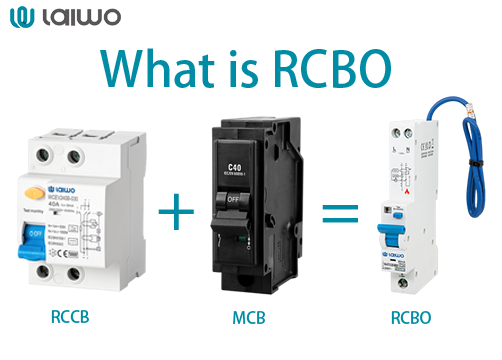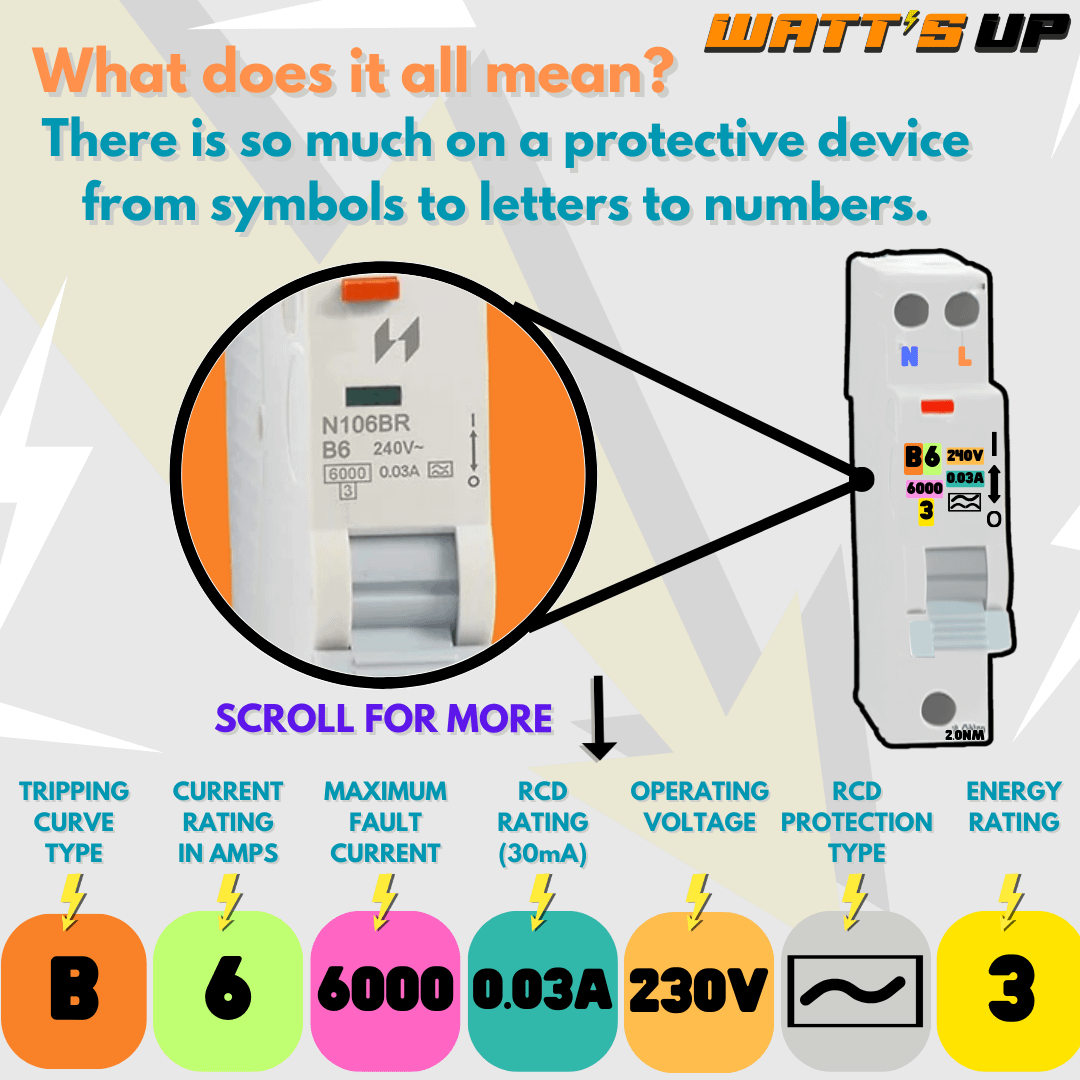Next: Understanding the difference between MCB RCCB and RCBO


RCBO(full form in electrical: Residual Current Breaker with Overcurrent) is a sophisticated electrical safety device that integrates the functionalities of both an RCCB and an MCB into a single compact unit. This combination allows an RCBO to provide comprehensive protection against a wide range of electrical faults, including earth fault currents, short circuits, and overloading. By combining these two essential protective functions, RCBOs offer both personal safety by preventing electric shock through earth fault detection and equipment protection by interrupting overcurrents that could damage wiring and appliances.
The integration of these features into a single device makes RCBOs a convenient and space-saving solution for electrical installations, simplifying the design and reducing the number of components required in an electrical panel. For users wondering “What is an RCBO?” or “What is RCBO in electrical systems?”—this device essentially acts as a dual-purpose circuit breaker, addressing both overcurrent and earth leakage risks.
| Feature | MCB | RCCB | RCBO |
|---|---|---|---|
| Full Form | Miniature Circuit Breaker |
Residual Current Circuit Breaker / Residual Current Device (RCD) / Ground Fault Circuit Interrupter (GFCI) |
Residual Current Circuit Breaker with Overcurrent Protection |
| Protection Against | Overload, Short Circuit | Earth Leakage (Electric Shock) | Overload, Short Circuit, Earth Leakage |
| Working Principle | Thermal (Overload), Magnetic (Short Circuit) | Kirchhoff's Current Law (Current Imbalance) | Combination of Thermal/Magnetic (Overcurrent) and Current Imbalance (Earth Leakage) |
| Primary Purpose | Equipment Protection | Personal Safety (Electric Shock Prevention) | Comprehensive Protection (Equipment and Personal Safety) |
| Resettable | Yes | Yes | Yes |
| Typical Applications | General circuit protection in all settings | Wet areas, high-risk appliances, personnel protection focused areas | Individual circuit protection in residential, commercial, and industrial settings, hig |
RCBOs offer the most comprehensive protection by combining overcurrent and earth fault protection in a single device. This integration saves space in electrical panels and provides individual circuit protection, which can improve fault isolation.
Generally, RCBOs are more expensive than purchasing separate MCBs and RCCBs for each circuit. They can also be more complex to troubleshoot compared to simpler devices—a key consideration when evaluating “Which is better: MCB or RCBO?”
The working principle of an RCBO involves the integration of two distinct protection mechanisms within a single housing: one for overcurrent protection and another for residual current (earth fault) protection.
Overcurrent Protection:
The overcurrent protection component of an RCBO functions in exactly the same way as a standard MCB. It utilizes a thermal tripping mechanism, which employs a bimetallic strip that bends and trips the device when a sustained overload current flows, and a magnetic tripping mechanism, which uses a solenoid to rapidly trip the device in response to the high fault currents associated with a short circuit.
Residual Current Protection:
The residual current protection component of an RCBO operates on the same principle as a standalone RCCB. It employs a core balance transformer to continuously monitor the current balance between the live and neutral conductors. If an earth fault occurs and a current imbalance is detected—even a small one—the device will trip, interrupting the power supply to prevent electric shock.
An RCBO is designed to trip if either an overcurrent condition (overload or short circuit) or an earth fault is detected. This dual protection capability makes RCBOs a highly effective safety device. Some RCBO models also include visual indicators (aligned with standard RCBO symbols) that can help identify whether a trip occurred due to an earth fault or an overcurrent, which can be useful for troubleshooting.

Image source: The meaning of the Symbols on an RCBO
RCBOs offer protection against three primary types of electrical faults:
Overload: This occurs when a circuit draws more current than its rated capacity for a sustained period, leading to potential overheating and damage.
Short Circuit: This involves a sudden and very high flow of current resulting from a low-resistance fault between conductors, which can cause severe damage and fire hazards.
Earth Leakage (Ground Faults): This happens when current flows to the earth through an unintended path, posing a significant risk of electric shock to anyone who comes into contact with the faulty circuit or equipment.
In residential properties, RCBOs are particularly advantageous for protecting individual circuits, especially those that supply high-demand appliances (e.g., kitchen appliances, heating systems) or are located in areas with an elevated risk of faults (e.g., outdoor sockets). By using RCBOs on individual circuits, if a fault occurs on one circuit, only that specific circuit will trip, minimizing disruption to the rest of the electrical installation.
In offices, retail spaces, and public buildings, RCBOs help ensure safety and minimize operational downtime by quickly isolating electrical faults. Their ability to replace traditional combinations of MCB + RCCB (addressing the common query “Can RCBO replace RCCB?”) simplifies panel design while maintaining compliance with safety standards.
In factories and manufacturing plants, RCBOs are crucial for safeguarding expensive machinery and sensitive control systems where both overcurrent and earth fault protection are essential.
Now that you are aware of the protective devices that can protect your electrical system, it's time to look for the one that best meets your requirements. When investing in an electrical protection device such as an RCBO, be sure to get help from a reliable manufacturer/supplier such as Laiwo. Laiwo Electric is a one-stop shop for all your electrical needs, including surge protectors, distribution boxes, earth leakage protection devices and switched outlets. If you have additional questions or need assistance, please feel free to contact the customer service team. Give us a call and we'll have a team of professionals answer your questions!
INQUIRY NOW